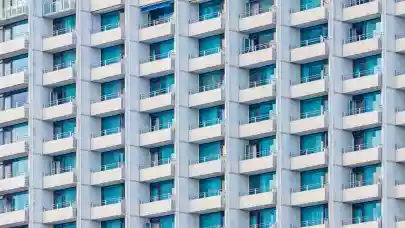
Indoor air and water quality is not something many people give too much attention to when it comes to the office buildings where they work and spend most of their time during the day. At home, they invest in products like air purifiers and water filtration systems; at work, they rely on their employer or building owner and, most of the time, they take what they get without sometimes even considering if it may or may not affect their health, writes Dr. Darren Allen, Director of the Healthy by Design Building Institute, in an opinion piece for Property Forum
The pandemic changed peoples’ perception about the quality of the built environment where they choose to spend their time. The same goes for employers and building owners. As the vaccination against COVID-19 progresses and employees gradually return to the office, hopes are high that life will soon return to normal, including in the office, even though highly likely in a different set-up than before. One thing is certain: healthy people need healthy buildings, and indoor air and water quality seems to play a bigger role than anyone thought.
Some of the shortcomings of poor indoor air quality are already known. Research conducted by air quality authorities all over the world have shown time and again that indoor air can be more polluted than outdoor air and that effects on people can be significant. Nose and throat irritation, fatigue, and headaches are just a few of the symptoms that could be experienced.
To make things even worse, last year it turned out that the spread of the coronavirus is possible via airborne particles in indoor environments, in some circumstances even beyond the recommended 2 meters for social distancing, as confirmed by the Environmental Protection Agency (EPA) in the United States, buildings themselves became sensitive. Bad air can carry viruses and bacteria, each with risks of leading to respiratory and circulatory system conditions, even for people in good health, not to mention for those already having health problems like asthma or hypertension.
If we talk about the health of a building, the sick building syndrome (SBS) is a serious problem. In plain terms, such a “diagnosis” starts from the source of pollutants found in the indoor environment - because even low-quality building materials and furniture, or a high level of moisture can be a serious issue. Notwithstanding this, the systems within buildings like heating, ventilation and air conditioning are challenged by the activity of increased maintenance and quality. A sick building bares the risk of exposing people to health threats and the pandemic highlighted this more than ever. Even with successful mass vaccination, the sick building problem will have to be addressed if companies want to regain the trust of their employees long-term.

Darren Allen
Director, Healthy by Design Building Institute & Development Manager
Genesis Property
In the past year, multiple surveys have been conducted worldwide, including in Romania, to establish employees’ perceptions about returning to the office and their expectations about the office of the future. Generally, people want to feel that companies put their health first and take action to protect it. A survey conducted last year by Genesis Property among Romanian employees showed that the pandemic year increased the importance of health measures taken in the building for 51% of respondents, as well as of the workspace structure, with greater emphasis on delimited offices that facilitate distancing. At the same time, 41% said that from now on they will more carefully evaluate the technologies that are available in the workplace to ensure better protection for their health and for the health of their colleagues.
More efficient air and water filtration systems were considered the most important measures with regards to trust in returning to the office, according to 58% of employees, alongside better hygiene systems in restrooms and more efficient solutions to ensure social distancing. High-class water purification systems and air filtration technologies to enhance the sanitization of indoor spaces in order to prevent the spread of bacteria or viruses are just some of the 135 measures recommended by the IMMUNE Building Standard™, the first global standard to assess the resilience of office buildings to the COVID-19 pandemic and other similar health threats. Such measures are precisely the way to redesign, re-engineer and reorganize workplaces, boosting their immune system and making them more resilient to health challenges in the COVID-19 context and beyond.



